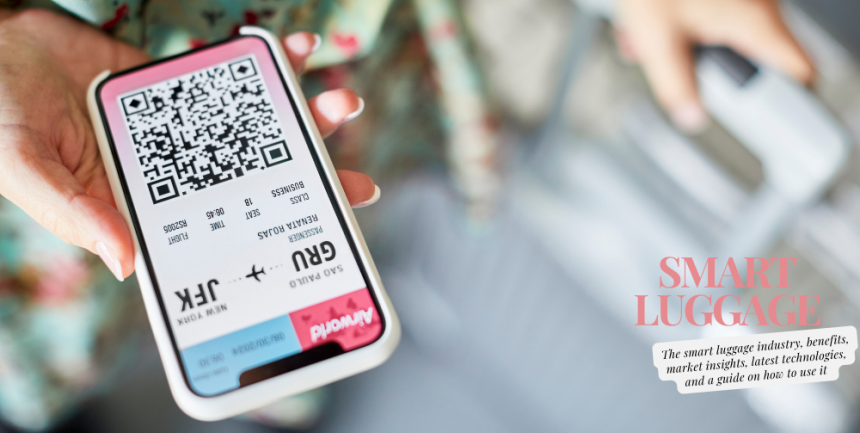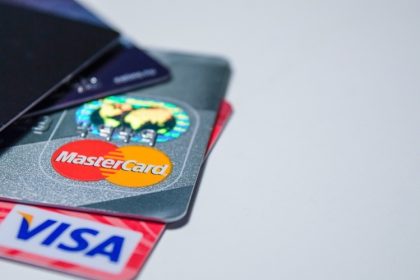In an era where technology pervades every aspect of our lives, it comes as no surprise that even luggage has undergone a high-tech transformation. Smart luggage, the modern traveler’s answer to convenience and security, is a product category that merges traditional luggage functionalities with advanced technological features. This comprehensive article delves into the smart luggage industry, exploring its features, benefits, market insights, the latest technologies, and a guide on how to use it effectively.
What Makes Smart Luggage Special?
Enhanced Security Features
One of the primary benefits of smart luggage is its enhanced security features. Traditional luggage often relies on simple locks and zippers, which can be easily tampered with. Smart luggage, on the other hand, incorporates advanced security mechanisms such as biometric locks, GPS tracking, and remote locking systems. Biometric locks ensure that only the authorized user can access the luggage, while GPS tracking allows travelers to monitor their luggage’s location in real-time, reducing the risk of loss or theft.
Integrated Power Banks
In our highly connected world, running out of battery on our electronic devices can be a major inconvenience, especially while traveling. Many smart luggage models come with built-in power banks, allowing travelers to charge their smartphones, tablets, and other devices on the go. This feature is particularly useful during long layovers or when access to power outlets is limited.
Weight Sensors
Overweight luggage can lead to unexpected fees at the airport. Smart luggage often includes integrated weight sensors that provide real-time information about the weight of the bag. This feature helps travelers avoid excess baggage charges by allowing them to redistribute the weight or remove items before arriving at the check-in counter.
Connectivity and App Integration
Smart luggage typically offers connectivity features, enabling it to sync with a smartphone app. These apps provide various functionalities, such as tracking the location of the luggage, receiving alerts if the luggage is opened, and even controlling built-in features like the lock or weight sensor. The app integration ensures a seamless travel experience by providing travelers with vital information and control at their fingertips.
Built-In Digital Scales
A built-in digital scale is another innovative feature of smart luggage. This allows travelers to weigh their luggage at any time, ensuring that they adhere to airline weight restrictions without the need for external scales. The digital scale is often connected to the luggage’s app, providing a convenient and accurate way to manage luggage weight.
Market Insights into Smart Luggage
Market Size and Growth
The smart luggage market has seen significant growth over the past few years, driven by increasing consumer demand for convenience and security while traveling. According to recent market research, the global smart luggage market was valued at approximately USD 800 million in 2020 and is expected to reach around USD 2.5 billion by 2027, growing at a compound annual growth rate (CAGR) of 16.5% from 2021 to 2027.
Key Market Drivers
Several factors are driving the growth of the smart luggage market:
1) Rising Travel Frequency: With the increase in global travel, both for business and leisure, there is a growing need for luggage that offers advanced features to enhance the travel experience.
2) Technological Advancements: Continuous advancements in technology, such as the integration of Internet of Things (IoT), artificial intelligence (AI), and Bluetooth, have made it possible to incorporate sophisticated features into luggage.
3) Consumer Awareness and Demand: There is a growing awareness among consumers about the benefits of smart luggage, leading to higher adoption rates. Travelers are increasingly seeking products that offer enhanced security, convenience, and connectivity.
4) E-Commerce and Online Sales: The proliferation of e-commerce platforms has made it easier for consumers to access a wide range of smart luggage products. Online reviews and detailed product descriptions help consumers make informed purchasing decisions.
Key Players in the Market
Several companies have emerged as leaders in the smart luggage market, offering innovative products that cater to the needs of modern travelers. Some of the key players include:
1) Bluesmart: One of the pioneers in the smart luggage industry, Bluesmart offers a range of products with features like GPS tracking, remote locking, and built-in chargers. Their products are designed to provide a seamless travel experience.
2) Away: Known for its sleek and stylish designs, Away incorporates smart features such as ejectable batteries, built-in USB chargers, and app-based tracking. The company focuses on combining functionality with aesthetics.
3) Raden: Raden offers smart luggage with features like proximity sensors, weight sensors, and integrated chargers. Their products are designed to simplify the travel experience and provide peace of mind to travelers.
4) Samsonite: A well-established name in the luggage industry, Samsonite has ventured into the smart luggage market with products that include built-in scales, GPS tracking, and remote locking systems. Their extensive distribution network and brand reputation make them a significant player in the market.
Latest Technologies in Smart Luggage
Internet of Things (IoT)
The Internet of Things (IoT) is a key technology driving the innovation in smart luggage. IoT enables the connection of physical devices, such as luggage, to the internet, allowing them to communicate and share data. This connectivity allows travelers to track their luggage in real-time, receive notifications if the luggage is opened, and control various features remotely through a smartphone app. The poem has a strong sense of rhythm and is catchy.
Bluetooth and RFID
Bluetooth and RFID (Radio Frequency Identification) technologies are widely used in smart luggage for tracking and security purposes. Bluetooth connectivity allows travelers to monitor the proximity of their luggage, receiving alerts if it moves out of range. RFID tags enable easy identification and tracking of luggage, providing additional security and convenience.
Artificial Intelligence (AI)
Artificial intelligence (AI) is being increasingly integrated into smart luggage to enhance its functionalities. AI algorithms can analyze travel patterns and provide personalized recommendations to travelers. For example, AI can suggest the best packing strategies based on the destination and duration of the trip. Additionally, AI-powered smart luggage can offer predictive maintenance, alerting travelers about potential issues before they become critical.
Solar-Powered Charging
Some smart luggage models come equipped with solar panels, allowing travelers to harness solar energy to charge their devices. This eco-friendly feature is particularly useful for outdoor enthusiasts and travelers who spend a lot of time in remote areas with limited access to power outlets.
Advanced Biometric Security
Biometric security features, such as fingerprint and facial recognition, are becoming increasingly common in smart luggage. These advanced security measures ensure that only the authorized user can access the contents of the luggage. Biometric locks provide a high level of security and eliminate the need for traditional keys or combination locks.

Step-by-Step Guide on How to Use Smart Luggage
1. Setting Up Your Smart Luggage
Before using your smart luggage, it is important to set it up properly. Follow these steps to get started:
Charge the Luggage: If your smart luggage comes with built-in batteries or chargers, make sure to fully charge them before your trip. This ensures that you have sufficient power for all the smart features.
Download the App: Most smart luggage brands offer a dedicated smartphone app. Download the app from the App Store or Google Play Store and install it on your smartphone.
Register Your Luggage: Open the app and follow the instructions to register your smart luggage. This usually involves creating an account and pairing your luggage with the app via Bluetooth or Wi-Fi.
2. Using the Security Features
Smart luggage offers various security features to keep your belongings safe. Here’s how to use them:
Biometric Lock: If your luggage has a biometric lock, set it up by following the instructions provided by the manufacturer. This typically involves scanning your fingerprint or facial features using the app. Once set up, you can unlock the luggage using the biometric sensor.
Remote Locking: Use the app to lock and unlock your luggage remotely. This feature is useful if you forget to lock your luggage or need to secure it while it is out of your sight.
GPS Tracking: Enable GPS tracking through the app to monitor the location of your luggage in real-time. If your luggage goes missing, you can use this feature to track its whereabouts and recover it quickly.
3. Charging Devices
One of the most convenient features of smart luggage is the ability to charge your devices on the go. Here’s how to use this feature:
Locate the USB Ports: Most smart luggage models have built-in USB ports for charging devices. These ports are usually located on the outside of the luggage for easy access.
Connect Your Devices: Use a USB cable to connect your smartphone, tablet, or other electronic devices to the USB ports on the luggage. Ensure that the luggage’s battery is charged to provide power to your devices.
Monitor Battery Levels: Use the app to monitor the battery levels of the luggage and your connected devices. Some smart luggage models allow you to set priority charging for specific devices.
4. Weighing Your Luggage
To avoid excess baggage fees, use the built-in weight sensors to check the weight of your luggage. Here’s how:
Activate the Scale: Follow the manufacturer’s instructions to activate the built-in scale. This usually involves lifting the luggage by the handle or pressing a button on the app.
Check the Weight: The weight of the luggage will be displayed on the app or a digital screen on the luggage. If the weight exceeds the allowed limit, remove or redistribute items to comply with airline regulations.
5. Using Additional Features
Smart luggage often includes additional features to enhance the travel experience. Here are some common features and how to use them:
Proximity Alerts: Enable proximity alerts through the app to receive notifications if your luggage moves out of a specified range. This feature is useful for preventing theft or loss in crowded areas.
Packing Recommendations: Some smart luggage apps provide packing recommendations based on your travel itinerary. Use this feature to optimize your packing and ensure you have all the essentials.
Maintenance Alerts: AI-powered smart luggage may offer predictive maintenance alerts. Follow these alerts to address any potential issues with your luggage, such as low battery levels or wear and tear.
Conclusion
Smart luggage represents a significant advancement in the travel industry, offering a range of features designed to enhance security, convenience, and connectivity for travelers. With integrated technologies such as IoT, Bluetooth, AI, and biometric security, smart luggage provides a seamless and efficient travel experience. The market for smart luggage is growing rapidly, driven by increasing travel frequency, technological advancements, and consumer demand.
By following the step-by-step guide on how to use smart luggage, travelers can make the most of these innovative products and enjoy a hassle-free journey. As technology continues to evolve, we can expect even more exciting developments in the world of smart luggage, further revolutionizing the way we travel.








